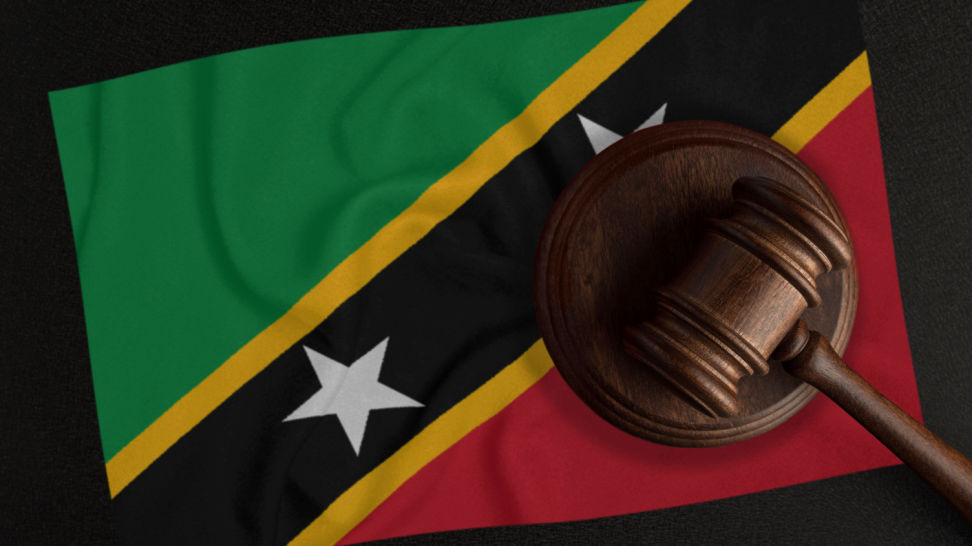High-net-worth individuals often worry about what will happen to their assets in the event of litigation. Many professionals work hard to build up and invest in assets, but malicious lawsuits can put those assets at risk.
Individuals looking to improve their financial strength and protect their wealth from future seizure by U.S. creditors may want to consider setting up an international asset protection trust.
If you’re considering an offshore asset protection trust to establish legal protection for your assets, this article from our legal team at Blake Harris Law will provide a quick look into foreign asset protection.
Read about what a foreign asset protection trust is and the best offshore jurisdictions for them. We also present the primary benefits of a foreign trust over its domestic counterparts and answer other essential questions.
What Is an International Asset Protection Trust?
An asset protection trust is an irrevocable trust created to protect wealth from litigation and asset seizure. A domestic asset protection trust serves this purpose most successfully when the individual surrenders direct control over their assets. To get the protection they need against the U.S. legal system, many wealthy individuals create trusts outside the country for foreign asset protection.
An offshore trust created under foreign laws can provide robust asset protection outside of U.S. civil court jurisdiction. By creating an offshore trust within a foreign country, an individual can keep a level of control of their assets and keep them out of the reach of U.S. civil creditors, who are often deterred from legal action by international law.
International trusts are set up like domestic asset protection trusts. The people involved include the following:
- Settlor: Sometimes called the grantor or the trustor, this is the individual who establishes the asset protection trust to protect their assets from domestic litigation in their home country.
- Managing trustee: The settlor chooses an offshore trustee who controls the trust, usually a foreign trust company. (A trust with a U.S. managing trustee is a U.S. grantor trust.) To establish an offshore trust, the settlor must eliminate all U.S. involvement and choose an independent trustee overseas.
- Protector: The settlor may designate a trust protector, often an attorney. The protector has limited powers, such as changing the trust’s terms or removing and appointing a trustee.
- Beneficiaries: The settlor also chooses one or more individuals who may receive money from the trust. Typically, the settlor will choose themself.
When set up correctly, an international asset protection trust forces domestic creditors to weigh the costs of pursuing collection actions against you. A potential creditor may decide to settle or drop the action altogether.
International Asset Protection Trust: Key Terms
While researching the viability of an offshore asset protection trust, you may encounter the following essential terms:
- Fraudulent Conveyance: A fraudulent transfer or conveyance occurs when a trust settlor transfers assets into the trust to intentionally avoid seizure from a court judgment. A fraudulent conveyance may also occur if the settlor transferred the assets after anticipating litigation. One of the major advantages of international protection trusts is the significant burden or proof that foreign trust legislation puts on the plaintiff to prove a fraudulent conveyance.
- Contempt of Court: If a settlor refuses to comply with a court order, they can be held in contempt of court. It is essential that a settlor complies with all court orders and it is important that their compliance does not compromise the protection of their trust.
- Jones Clause: All this does not mean that individuals with current creditors cannot create international asset protection trusts. The settlor simply needs to include a clause instructing the foreign trustee to pay the creditor the owed amount. This clause eliminates the risk of being accused of a fraudulent conveyance.
What Are the Best Foreign Jurisdictions for an Offshore Asset Protection Trust?
Several international jurisdictions have offshore trust structures, but the best options are economically stable and have reliable trust companies. The most popular offshore jurisdictions include:
The Cook Islands
Many individuals choose to create a Cook Islands Asset Protection Trust to take advantage of the country’s protective laws. If you choose to protect your assets with a Cook Islands trust, you can rest easy knowing that the Cook Islands have a long reputation for impenetrable asset protection.
In 1989, the Cook Islands formed the first international trust structure with a robust legislature regarding asset protection via the International Trust Act. Since then, other countries have followed suit, creating a protective environment for trust assets.
Benefits of choosing the Cook Islands as your trust’s offshore jurisdiction include:
- No foreign court orders are recognized
- Contingency fees are strictly prohibited
- Extremely high standard of proof required to win a case
Belize
Belize joined the Cook Islands as a popular option for offshore trusts in 1992 with the passing of the Trust Act of Belize. Revised as the Belize Trust Act in 2000 and later amended in 2007 and 2013, this legislation provides asset protection at lower costs than the Cook Islands.
Trust settlors benefit from trust flexibility, strong privacy laws, and many investment opportunities. Belize trusts also provide asset protection with no minimum waiting period once the trust is formed.
St. Kitts and Nevis
St. Kitts and Nevis regulates foreign asset protection trusts through the Nevis International Exempt Trust Ordinance, legislation that provides comprehensive offshore asset protection. Creditors seeking assets within a Nevis Asset Protection Trust face many barriers:
- To file a claim, a plaintiff must pay the Nevis Ministry of Finance $100,000
- The plaintiff must hire a lawyer with a local license
- Plaintiffs must pay any legal fees upfront.
Nevis also serves as a popular option for an offshore limited liability company (LLC). A common international asset protection trust structure includes a trust formed in Belize or the Cook Islands that owns a Nevis LLC.
This structure allows the trust owner to hold assets under the LLC and transfer management to the foreign trustee if needed. As the LLC manager, the trust settlor maintains legal control and signature authority on any LLC bank account and other assets.
What Are the Benefits of an Offshore Trust?
International asset protection trusts offer many benefits, including the following:
- International asset protection trusts can hold a wide variety of asset classes, including cash, digital assets, securities, LLCs, real estate, recreational assets, cryptocurrency, business inventories, etc.
- Creditors have one- or two-year time limits for pursuing legal actions.
- Laws in these jurisdictions often do not recognize foreign judgments.
- The expense of filing a case in a foreign jurisdiction deters creditors from making claims.
- Creditors must prove beyond a reasonable doubt that you set out to intentionally defraud them.
- Trust settlors and beneficiaries enjoy more financial privacy than with a domestic trust.
- Belize and the Cook Islands don’t have bankruptcy laws that might affect domestic trusts.
- Nevis, Belize, and the Cook Islands allow trust owners to be beneficiaries in what’s called a self-settled trust.
If you form an offshore trust, you also gain more accessible access to international investments and a more stable legal climate for estate and family planning than with a domestic asset protection trust.
What Assets Can You Protect With an International Trust?
An international asset protection trust protects offshore assets. You can hold U.S.-based assets in offshore trusts, but these assets do not have the trust’s complete protection because they exist in the U.S.
The best assets for this type of trust include offshore bank accounts, cryptocurrency, brokerage accounts, and other trust assets you can move offshore. Foreign LLCs owned by international trusts also provide a good option for holding assets.
What Do Foreign Asset Protection Trusts Not Do?
Offshore asset protection trusts, such as a foreign grantor trust, provide wealth protection against potential future litigation, but they should not be used to try to defraud creditors. If an individual moves assets into offshore trusts to avoid paying current creditors, the transfer may be considered a fraudulent transfer or conveyance. For the best asset protection, set up your offshore trusts before the potential for legal judgments. If you have pending litigation, consult with an asset protection attorney to learn whether you can set up an offshore trust.
An international trust also does not reduce tax obligations to the U.S. Internal Revenue Service (IRS). U.S. citizens must report international asset protection trusts to the IRS and pay taxes on foreign trust gains. Visit the following link for more information on offshore trust IRS reporting requirements.
How Much Does It Cost To Set Up an Offshore Trust?
The costs of setting up an international trust to protect assets depend on several factors, including the jurisdiction and the costs of hiring professionals. Actual dollar amounts vary widely between $10,000 and $50,000, plus annual management fees.
When creating a trust, settlors must balance affordability with their expectations. Individuals desiring a trust protector will pay more to establish the trust.
Blake Harris Law has negotiated discounts with several offshore providers to give our clients some of the best pricing options available for establishing and maintaining an offshore trust.
Set Up Your Asset Protection Trust With Us at Blake Harris Law
Our asset protection attorneys at Blake Harris Law can help you set up your international asset protection trust. We work with clients across the U.S. to help protect their families from future disputes and litigation. We’ll help you choose the best trust company and set up your trust correctly.
Schedule a consultation online or give us a call at 833-Ask-Blake to learn more about how our asset protection firm can help with your offshore trust.





